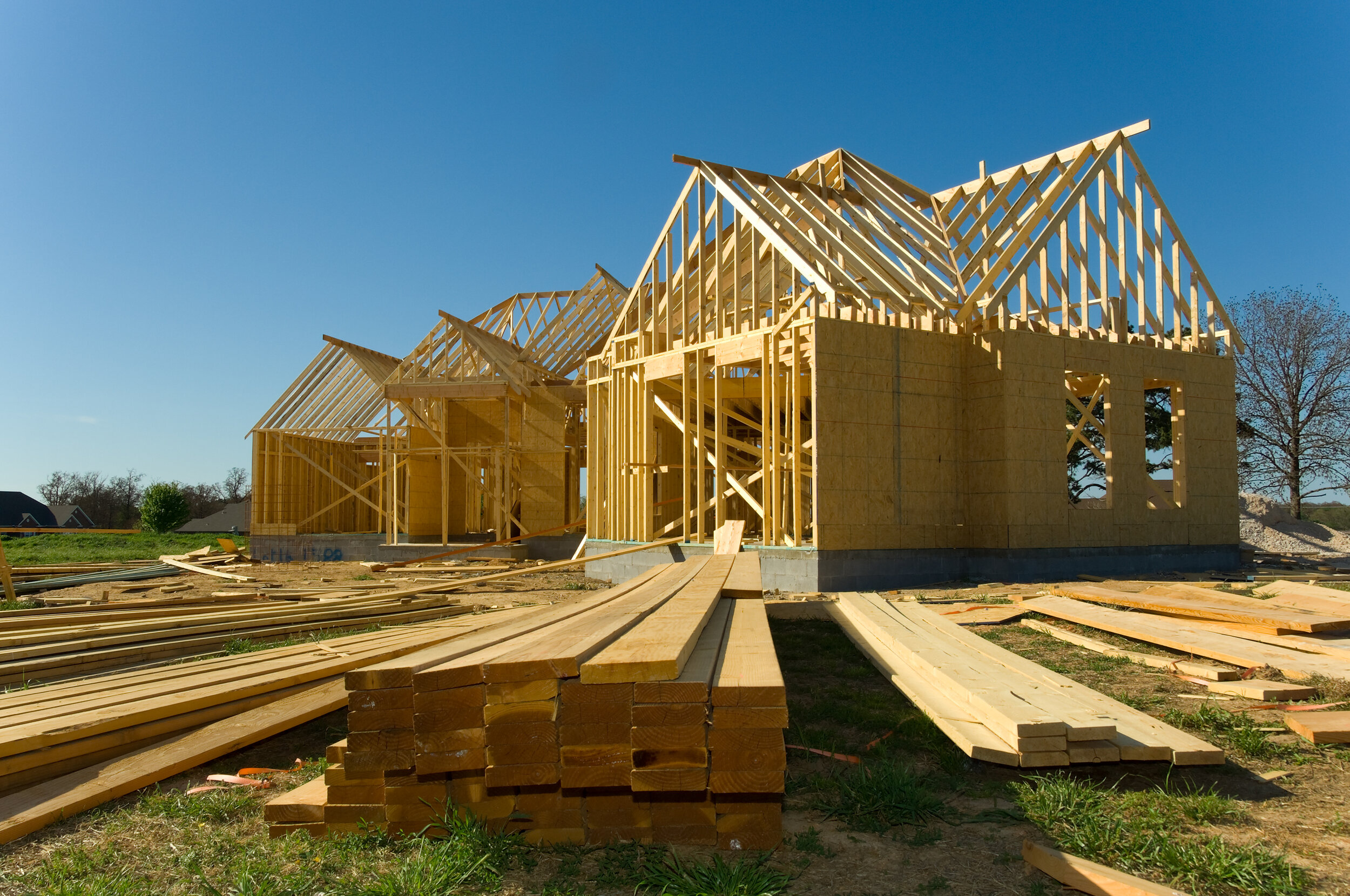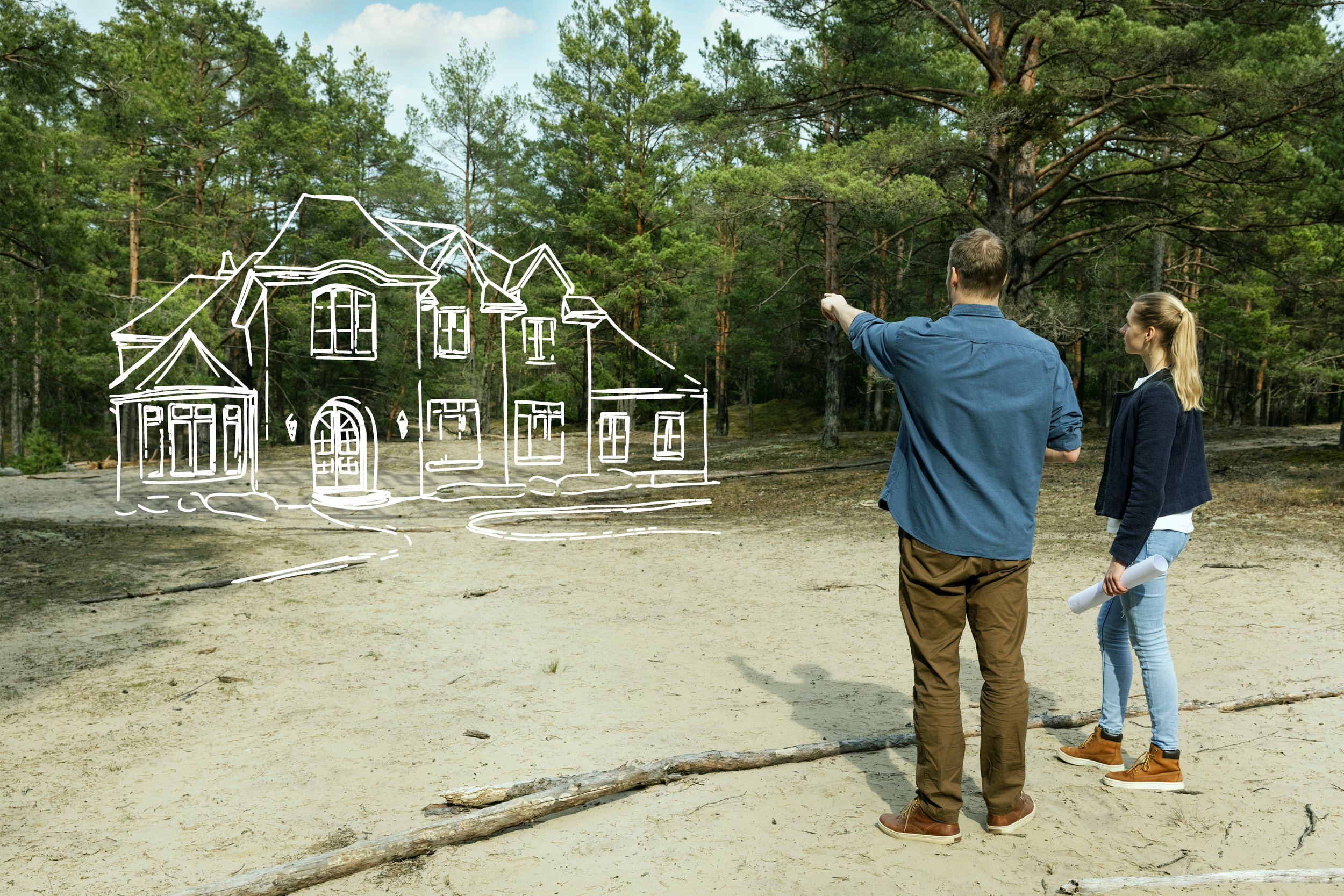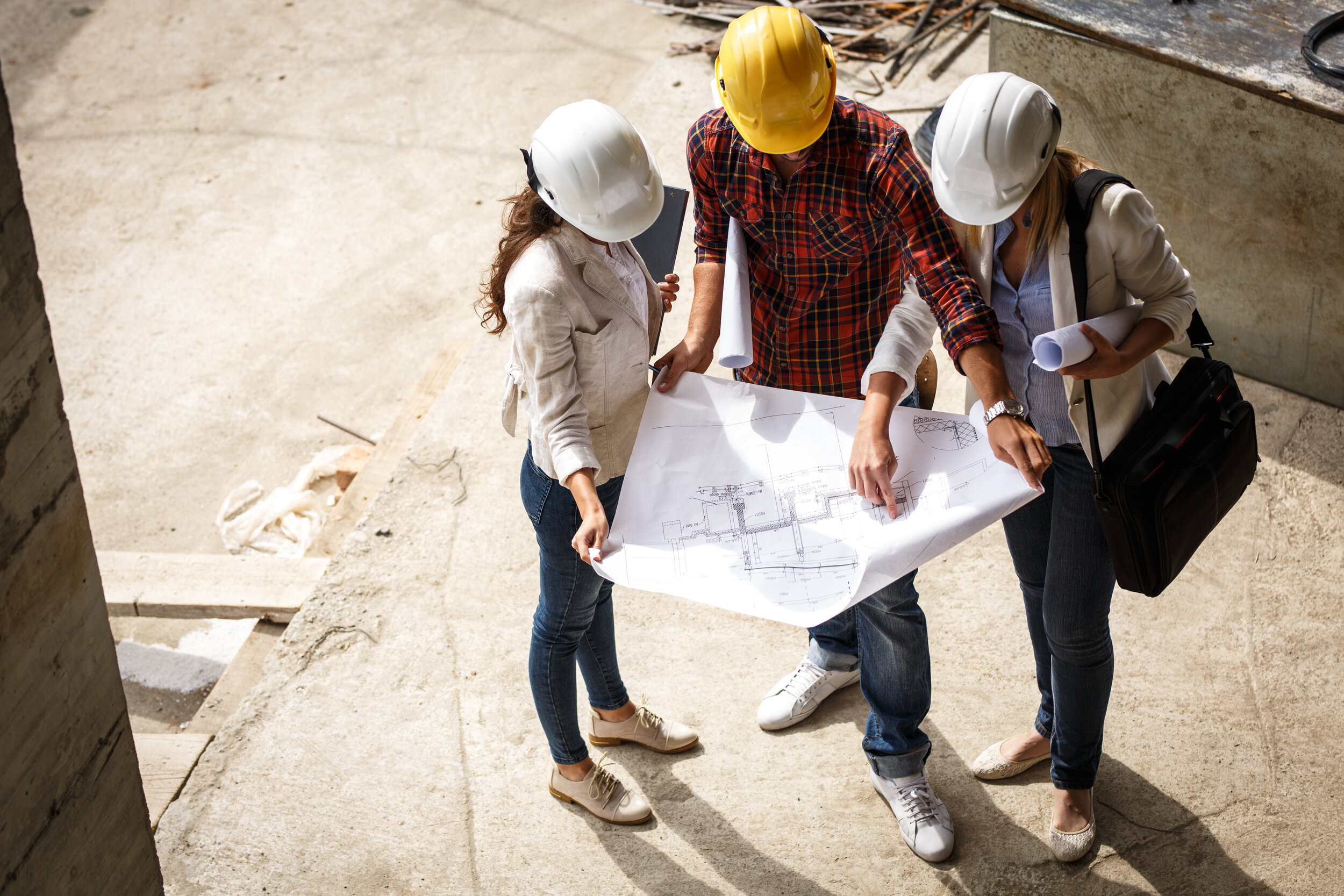Design Build Contractors in San Diego
What is a Design Build Contractor for Custom Built Homes?
A design build contractor is a single company responsible for both the design and construction of a project. This is slightly different from the traditional process, where the owner hires a separate architect or design firm to design the home, and then a separate general contractor is hired to build based on those designs.
In the design build approach, a single entity or a team composed of both designers (architects, engineers, etc.) and builders, takes on the responsibility for both the design and construction phases. This integrated approach aims to streamline the project by fostering collaboration and communication between designers and builders from the outset. It can lead to more efficient project timelines, cost savings, and reduced potential for disputes that can arise when different entities are responsible for different phases.
What are the Benefits & Drawbacks of a Design Build Contractor?
Design build contractors combines design and construction, making the process smoother and faster. Clients have just one main contact, which reduces confusion and ensures a clearer budget. This approach often leads to better communication and a more cohesive final result. Here’s a list of some of the benefits of the design build approach.
Pros of using a design build contractor may include:
Streamlined Communication: With a single entity responsible for both design and construction, communication is often smoother, leading to better coordination, reduced misunderstandings, and potentially faster decision-making.
Faster Project Delivery: Design and construction phases can overlap, leading to potentially shorter project timelines compared to traditional methods where design is completed before construction begins.
Cost Visibility & Savings: The integrated approach can lead to better cost control and more accurate cost estimates, potentially resulting in cost savings for the project owner.
Collaboration: Early collaboration between designers and builders can lead to innovative and efficient solutions, as both teams work together to address challenges.
Single Point of Responsibility: The project owner deals with a single entity, simplifying accountability and reducing the potential for disputes between separate design and construction firms.
Enhanced Value Engineering: Design build Contractors are in a better position to identify cost-effective design and construction solutions, helping the owner achieve better value for their investment.
Reduced Risk for Owner: Since the Design build Contractor takes on more responsibility, the project owner may have reduced liability and risk in terms of coordinating between multiple parties.
Potential cons of using a design build firm may include:
Restricted Design Choices: Clients might not get to collaborate with leading designers or architects specialized in certain aesthetics, sometimes ending up with generic, one-size-fits-all designs.
Limited Design Control: Project owners may have less control over the design process, as the design build Contractor often has more influence over design decisions to optimize construction efficiency.
Quality Concerns: If the design build Contractor prioritizes construction efficiency over design quality, there may be potential concerns about the final outcome meeting the owner's expectations.
Potential for Conflicts of Interest: Design build Contractors might be motivated to cut costs in design or construction to maximize their profits, which could compromise the project's quality.
Limited Competition: In some cases, the project owner might have fewer options to choose from, as they are selecting a single entity for both design and construction, potentially reducing competitive bidding.
Dependency on Contractor Expertise: The success of the project heavily relies on the expertise and capabilities of the design build Contractor, and if they encounter difficulties or issues, it could impact the overall project.
Is Buildable a Design Build Contractor?
Buildable is a contractor operating in a unique space that bridges the traditional and the modern approaches. We recognize the efficiency and value that design build firms bring to the table. Their streamlined approach significantly reduces the risk of unforeseen costs, ensuring a smoother project flow.
However, the design build approach often comes with a limitation: a one-size-fits-all designer working across all their projects. At Buildable, whether you dream of a modern or Spanish aesthetic, we can work with the top architects to realize that vision. While this might work for some, it doesn't cater to those who seek specialized design styles. Many top-tier architects and designers are renowned for their unique design signatures, and clients approach them specifically for that expertise.
Located in San Diego, Buildable has crafted a process that combines the best of both worlds. We offer the advantages of the design build approach while ensuring clients have the flexibility to collaborate with a designer who can truly bring their dream home vision to life. Our builder is actively involved throughout the design phase, providing valuable insights on cost implications and helping clients align their visions with their budgets.
This approach is especially crucial in areas like Rancho Santa Fe, where strict design standards are in place. In contrast, other regions offer more design freedom. With Buildable, you're not just building a home; you're working with the right team of experts from start to finish.
Contact us to learn more about how we can help you with your custom home build project.
Design Builder Licenses & Qualifications in San Diego
In San Diego, California, design build contractors typically need to be licensed as a General Building Contractor (Class B) by the California Contractors State License Board (CSLB). Design build contractors involved in design activities may also need appropriate professional licenses, such as architects or engineers, depending on the nature of the work.
Buildable holds both A & B general contractor licenses, allowing us to undertake engineering tasks. This capability is essential for custom home builds, which invariably involve intricate engineering, including but not limited to utility connections and off-site improvements.
What Can Design Build Contractors Do?
Design build Contractors provide a comprehensive approach, overseeing both design and construction aspects of a project. They manage diverse tasks across the construction spectrum. With Buildable, you enjoy dual benefits: the freedom to collaborate with your preferred designer and the assurance of a builder's presence throughout reviews, ensuring your budget remains on target.
Design builders may engage in the following activities.
Project Planning and Conceptualization:
Work with the client to understand their needs, goals, and vision for the project.
Develop initial design concepts and project plans based on client requirements.
Land Due-Diligence:
Review perspective home sits and offer guidance on feasibility.
Estimate improvement costs to be incorporated into the overall budget.
Architectural and Engineering Design:
Create detailed architectural and engineering drawings and plans for the project.
Ensure that the design complies with local building codes, regulations, and safety standards.
Value Engineering:
Analyze design elements and materials to optimize project costs without compromising quality or functionality.
Budgeting and Cost Estimation:
Provide accurate cost estimates for the project's design and construction phases.
Assist the client in developing a realistic budget for the project.
Construction Management:
Oversee and manage all aspects of the construction process, including scheduling, subcontractor coordination, and site management.
Monitor progress to ensure the project stays on track and within budget.
Site Preparation and Construction:
Coordinate site preparation, excavation, and foundation work.
Oversee the construction of the project, including structural, mechanical, electrical, and finishing work.
Subcontractor Management:
Hire and manage subcontractors for specialized tasks such as plumbing, electrical work, and HVAC installation.
Permitting and Regulatory Compliance:
Navigate the permitting process and ensure that all necessary approvals are obtained.
Ensure compliance with local, state, and federal regulations.
Quality Control and Assurance:
Implement quality control measures to ensure that construction meets design specifications and industry standards.
Conduct inspections and address any issues that arise during construction.
Risk Management and Problem-Solving:
Identify and address potential challenges and obstacles during the project.
Develop strategies to mitigate risks and resolve issues in a timely manner.
Client Communication:
Maintain open and transparent communication with the client throughout the project.
Provide regular updates on progress, milestones, and any changes.
How Much Do Design Build Contractors Cost for Custom Homes in San Diego?
Custom home construction costs are influenced by factors such as the size and complexity of the home, the quality of materials used, the location of the property, design features, labor rates, and more. Additionally, the fees and pricing structure of design build Contractors can also vary. To understand more about what it costs to work with Buildable, you can set up a time here.
Factors that may influence the cost of a project may include:
Size of the Home: Larger homes typically cost more to build than smaller ones due to increased material and labor requirements.
Design Complexity: Elaborate architectural designs, unique features, and custom details can add to the overall cost.
Materials and Finishes: High-end materials and finishes, such as premium flooring, countertops, fixtures, and appliances, will contribute to higher costs.
Site Conditions: Factors like the topography of the land, accessibility, and soil conditions can impact construction costs.
Permitting and Regulatory Costs: Permit fees and other regulatory costs can vary based on local requirements.
Project Timeline: An expedited construction schedule may lead to additional costs.
How to Choose the Best Design Builder in San Diego
The following are the process and tips to choosing the best design builder for your custom home build in San Diego.
Define Your Project Goals: Clearly articulate your project goals and any specific design preferences or requirements. This will serve as a foundation for your discussions with potential Design build Contractors.
Define Your Budget: Define your budget up front, and ensure it aligns to the area that you’re looking in.
Research and Shortlist: Research reputable Design build Contractors in your area. Look for firms with a strong track record, positive client reviews, and a portfolio that aligns with your project's scope and style.
Check Qualifications and Licensing: Ensure that the Design Builder has the necessary licenses, certifications, and qualifications to operate in your area and handle the scope of your project.
Evaluate Experience: Review the contractor's experience with projects similar to yours. Ask for examples of completed projects and inquire about their experience with projects of your size and complexity.
Request References: Ask the Design Builder for references from past clients. Reach out to these references to inquire about their experience working with the contractor, quality of work, and overall satisfaction.
Collaboration and Communication: Evaluate how well the Design Builder listens to your ideas and communicates their approach. A strong collaborative relationship is essential for a successful project.
Visit Completed Projects: Whenever possible, visit completed projects in person to see the quality of craftsmanship, design execution, and overall project outcome.
Ask About Design Flexibility: Inquire about the Design Builder's approach to incorporating your ideas and preferences into the design. Ensure they are open to customization and can balance your vision with their expertise.
Transparency and Cost Estimation: Ask about their process for providing cost estimates and ensure that their pricing structure is transparent. Request a detailed breakdown of costs and potential extras.
Consider Project Management: Inquire about the Design Builder's project management capabilities. A well-organized and efficient team can help ensure smooth execution and timely completion.
Trust Your Instincts: Pay attention to your gut feeling during interactions with potential contractors. Choose a Design Builder with whom you feel comfortable and confident.
Questions to Ask a Design build Contractor
When selecting a design build firm for your project, it's crucial to ask thoughtful and comprehensive questions to ensure that you find the best fit for your needs. The following is a curated list of the top questions to consider.
Experience and Qualifications:
How long have you been building custom homes?
Can you provide examples of similar projects you have completed in the past?
What is your team's expertise and qualifications, including architects, engineers, and builders?
References and Portfolio:
Can you provide references from past clients?
Could you share a portfolio or case studies showcasing your previous projects?
Project Approach and Process:
Can you describe your typical project approach, from initial concept to final construction?
How do you handle the planning, design, and construction phases?
How do you ensure effective collaboration between the design and construction teams?
Communication and Transparency:
How do you keep clients informed about project progress and any potential issues?
What tools or methods do you use to maintain transparency and communication throughout the project?
Design Flexibility and Customization:
How much input will I have in the design process, and how do you accommodate my preferences and ideas?
Can you give examples of how you've tailored designs to meet specific client needs in the past?
Timeline and Project Schedule:
What is your typical timeline for completing a Design build project of this scope?
How do you manage project scheduling and ensure timely completion?
Risk Management:
How do you handle unexpected challenges or changes during the project?
What steps do you take to mitigate risks and avoid delays?
Permits and Regulations:
How do you manage the process of obtaining necessary permits and adhering to local regulations?
Can you provide examples of how you've navigated complex permitting processes in the past?
Quality and Craftsmanship:
What measures do you take to ensure high-quality construction and attention to detail?
Do you have any certifications or awards related to design or construction quality?
Subcontractors and Partnerships:
Do you use subcontractors for any specialized aspects of the project, and how do you select and manage them?
Can you provide information about your relationships with suppliers and subcontractors?
Warranty and Post-Construction Support:
What type of warranty do you offer on your work, and how do you handle post-construction issues or adjustments?
How do you handle any potential defects or issues that arise after the project is completed?
How to Spot a Bad Design Build Contractor
Spotting a bad design build Contractor is crucial to avoid potential headaches, delays, and subpar results. The following are potential red flags to look out for when evaluating a custom home design builder.
Lack of Credentials and Licensing: A reputable Design builder should have the necessary licenses, certifications, and qualifications to operate in your area.
Poor Communication: If the contractor is unresponsive to your calls, emails, or questions during the initial consultation, it may indicate a lack of professionalism and poor communication skills.
Unrealistic Promises: Be wary of contractors who make overly ambitious promises or guarantees regarding project timelines, costs, or outcomes. Unrealistic expectations can lead to disappointment and problems later on.
Pushing for Immediate Decisions: A reputable Design Builder will give you time to review their proposal, ask questions, and make an informed decision. Avoid contractors who pressure you to sign a contract immediately.
Inadequate Contract: If the contract is vague, incomplete, or lacks essential details such as project scope, timeline, payment terms, and warranties, it may indicate a lack of professionalism and transparency.
Unwillingness to Provide a Written Estimate: A reliable Design builder should provide a detailed, written estimate that breaks down costs and explains the scope of work. Avoid contractors who are reluctant to provide this information.
Negative Online Reviews: Check online reviews and ratings from previous clients to get a sense of the contractor's reputation. Multiple negative reviews or consistent complaints can be a warning sign.
Subcontractor Issues: If the contractor frequently changes subcontractors or fails to manage them effectively, it can lead to delays, quality issues, and increased costs.
No Written Contract: A reputable Design Builder will have a detailed, written contract outlining the terms of the project. Avoid working with contractors who rely solely on verbal agreements.
Lowball Bids: Extremely low bids that seem too good to be true could be an indication of hidden costs, subpar materials, or potential shortcuts that may compromise the quality of the project.
Limited or No Design Input: If the Design Builder downplays the importance of the design phase or is dismissive of your design ideas, it may indicate a lack of commitment to your vision.
Poor Reviews from Trade Partners: Inquire with subcontractors, suppliers, and other industry professionals about their experience working with the Design Builder. If their reputation among peers is poor, it's a concerning sign.
Unwillingness to Address Concerns: If the contractor dismisses your concerns, avoids addressing issues, or fails to provide satisfactory explanations, it could indicate a lack of accountability.
Build Your Home in San Diego With Buildable
Building a custom home takes an immense amount of time and effort, but with the right team, the end result will be well worth it. The process can appear overwhelming to those who start the journey alone; however, building your dream home can be simple when you approach the process with experts by your side who can guide you through every step. Buildable specializes in luxury custom home construction, meaning we have the experts on our team that you need to have a stress-free home build, and create the luxury home of your dreams. We have over 40 years of home building experience within our team, and over 1,000 homes built. Read about our team, talk to us, and get the answers to questions you may have about starting the custom home building process in San Diego.





